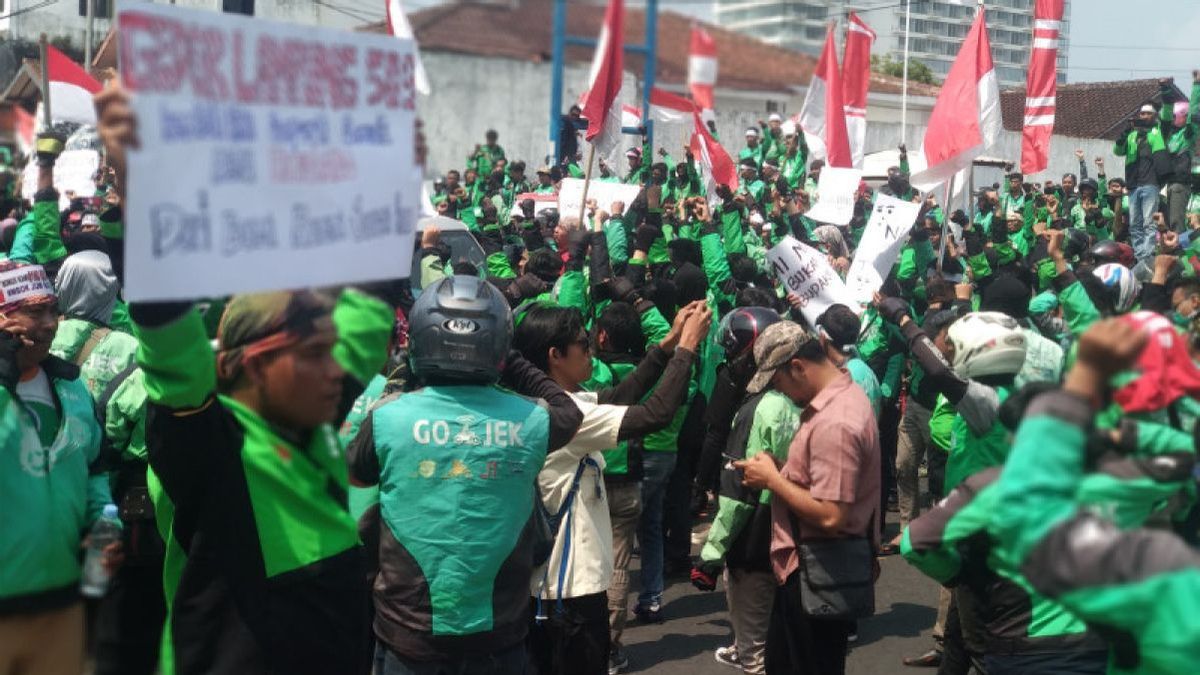JAKARTA - Executive Director of the Center for Strategic and International Studies (CSIS) Yose Rizal Damuri highlighted the demands regarding the determination of lower and upper limit rates for online courier services.
To note, the demands for legality and regulation of courier rates were conveyed by online motorcycle taxi drivers (ojol) and online couriers during the action held last week.
Yose assessed that the application of lower limit rates and upper limits to other transportation services such as flights actually limits innovation space and tends to eliminate business competition.
"So, if we look at the general time, for example, there is a lower limit, for example, in the past there were many transportations that were given lower limits, such as flights. Finally, it cannot also provide better conditions for the economy. So, this lower limit reduces competition from producers and reduces incentives for producers to innovate," he said as quoted by ANTARA, Friday, September 6.
Moreover, according to him, the application of lower and upper limit rates for online courier services could harm them.
This is due to the uniformity of tariffs limiting space for dynamic tariff determinations that reflect geographical conditions and the ups and downs of demand levels.
"For example, in terms of delivery, each region has different conditions. Whether geographically, the quality of the road or also various other things. Well, if there are lower bounds and upper limits set nationally, it certainly cannot reflect these conditions," he explained.
In addition, Yose considers that the uniformization of delivery service rates for goods and food can reduce business competition and has the potential to have a bad impact on online couriers and consumers.
On the other hand, it is also feared that the demands for the legality of ojol will have a negative impact on the flexibility of ojol's work.
SEE ALSO:
Meanwhile, Director of the Digital Center of Economic and Law Studies (Celios) Nailul Huda assessed that the demands of ojol partners who want legality status for online ojol workers and couriers can have a negative impact on the workers themselves.
The reason, said Nailul, is that ojol, which is part of non-permanent workers or gigs, really focuses on the flexibility of time at work.
"I understand that their demands will also lead to worker status for online motorcycle taxi drivers, where they can get the rights they demand. However, again the problem is when the status of workers is, the form of the contract is not as a gig worker anymore. They can lose their work flexibility and so on," said Nailul.
The formalization of ojol workers, he continued, could also trap ojol drivers in work traps with low quality without any agreement to develop their abilities.
The English, Chinese, Japanese, Arabic, and French versions are automatically generated by the AI. So there may still be inaccuracies in translating, please always see Indonesian as our main language. (system supported by DigitalSiber.id)
















